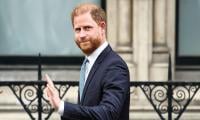Flt Lt Younus Hussain Shaheed, Sitara-e-Jurrat
Younus Hussain was born eighteen years after the marriage of his parents, and he was the only child. Although he was rejected in his first attempt to join PAF for being overage, however, who could have denied him the destiny and glory preordained. Sometime later, as tensions grew between Pakistan
By our correspondents
September 04, 2015
Younus Hussain was born eighteen years after the marriage of his parents, and he was the only child. Although he was rejected in his first attempt to join PAF for being overage, however, who could have denied him the destiny and glory preordained. Sometime later, as tensions grew between Pakistan and India, PAF asked for volunteers under slightly relaxed rules. He once again presented himself and this time he was successful. He joined RPAF College in 1956. After spending two busy years at RPAF College, promising Yunus earned his wings in 1958. His active participation in the skirmishes in Dir-Bajaur Ops in 1960-62 was acknowledged and he was awarded with "Tamgha-i-Diffa."
The fateful day of Sept 6 was ending. The sky was hazy and the sun had nearly gone down when a formation of three Sabre fighter-bombers of the PAF roared into the enemy territory. As they entered the hostile area, the leader of a returning PAF offensive mission came up on the radio, warning the leader about the presence of large number of IAF aircraft inside enemy territory. Disregarding, the debonair and determined Rafiqui pressed on single-mindedly with his two compatriots, Flt Lt Cecil Chaudhry and Flt Lt Younus Hussain, following close behind on his wings. It was the last PAF mission for the day; and at that time theirs were the only PAF aircraft in the enemy territory with no surprise element whatsoever in their favour. Their target was the important IAF base of Halwara, about 40 miles south of Jallandhar.
The Sabres, looking like hawks, searched for their prey but the failing light had obliterated the ground features beyond identification. Another three minutes passed when Rafiqui's voice came over the radio link; "Boys, let us go back; the light conditions are against us." With reluctance and heavy hearts, the three valiant fighters banked into a turn. Hardly had they set course for the base when a swarm of enemy Hunters zoomed in for attack. They came in pairs, one after the other.
"Jettison stores," yelled the leader; and the Sabres bucked like wild horses as the external fuel tanks dropped off the wings. Soon Younus came on the radio and said, 'Leader, let us go for them".
Rafiqui, in the meantime had manoeuvred his Sabre close behind his target. He pressed the gun-button and a stream of armour-piercing and incendiary bullets slammed into the fuselage and engine of the enemy at 'Point-Blank range'. They relentlessly raked the Hunter and suddenly the darkening Indian sky was lit with a crimson flash as the enemy aircraft exploded.
The grim battle continued. Yards away from Rafiqui, Younus was chasing another enemy fighter. He pulled up into a tight barrel roll, which helped him to get behind the Hunter. As the enemy aircraft came within range, Younus opened a telling burst from his six lethal guns; the barrage of cannon fire touched off a fast-billowing smoke from the left wing of the ill-fated Hunter. Next moment a parachute blossomed and went down as the pilot bailed out. Suddenly, more Hunters joined the battle and the area became a hornet's nest sprawling with enemy aircraft.
"My guns have jammed, Cecil, take over the lead. I'll cover you," called out Rafiqui on the radiotelephone and pulled sharply to one side to let Chaudhry get ahead. The gallant hero, though unarmed, had refused to quit the battle and supported his wingmen so that they could continue the fight. Undaunted by the numerical superiority of the enemy aircraft, Younus and Chaudhery leaped on the Hunters. Meanwhile, Rafiqui, like a seasoned leader, flew on the defence covering Chaudhry and Younus while they were blasting the enemy. As the dogfight continued, Younus scanned the skies but there was no trace of their gallant leader. Rafiqui was gone. He attained Shahadat keeping the rich traditions of PAF.
Stung by the loss of their leader, Chaudhry and Younus made a tight turn and furiously broke into the two Hunters. With Younus covering the tail, Chaudhry manoeuvred to get behind the second Hunter; and as the enemy came within range and he was about to press the trigger, he heard a thud. He looked back and saw Younus aircraft explode in the air. He did not see him bailing out. Courageous Younus was also gone. The journey that had started in 1936 had come to an abrupt end, though, in the finest traditions of PAF.
Brave men must die so that the nation lives, and Flt Lt Younus had done just that to keep burning the torch of honour and freedom. He became a symbol of courage and professional ability for the other pilots. For his valour, professional skill and devotion to duty; he was awarded Sitara-e-Jurat.
The fateful day of Sept 6 was ending. The sky was hazy and the sun had nearly gone down when a formation of three Sabre fighter-bombers of the PAF roared into the enemy territory. As they entered the hostile area, the leader of a returning PAF offensive mission came up on the radio, warning the leader about the presence of large number of IAF aircraft inside enemy territory. Disregarding, the debonair and determined Rafiqui pressed on single-mindedly with his two compatriots, Flt Lt Cecil Chaudhry and Flt Lt Younus Hussain, following close behind on his wings. It was the last PAF mission for the day; and at that time theirs were the only PAF aircraft in the enemy territory with no surprise element whatsoever in their favour. Their target was the important IAF base of Halwara, about 40 miles south of Jallandhar.
The Sabres, looking like hawks, searched for their prey but the failing light had obliterated the ground features beyond identification. Another three minutes passed when Rafiqui's voice came over the radio link; "Boys, let us go back; the light conditions are against us." With reluctance and heavy hearts, the three valiant fighters banked into a turn. Hardly had they set course for the base when a swarm of enemy Hunters zoomed in for attack. They came in pairs, one after the other.
"Jettison stores," yelled the leader; and the Sabres bucked like wild horses as the external fuel tanks dropped off the wings. Soon Younus came on the radio and said, 'Leader, let us go for them".
Rafiqui, in the meantime had manoeuvred his Sabre close behind his target. He pressed the gun-button and a stream of armour-piercing and incendiary bullets slammed into the fuselage and engine of the enemy at 'Point-Blank range'. They relentlessly raked the Hunter and suddenly the darkening Indian sky was lit with a crimson flash as the enemy aircraft exploded.
The grim battle continued. Yards away from Rafiqui, Younus was chasing another enemy fighter. He pulled up into a tight barrel roll, which helped him to get behind the Hunter. As the enemy aircraft came within range, Younus opened a telling burst from his six lethal guns; the barrage of cannon fire touched off a fast-billowing smoke from the left wing of the ill-fated Hunter. Next moment a parachute blossomed and went down as the pilot bailed out. Suddenly, more Hunters joined the battle and the area became a hornet's nest sprawling with enemy aircraft.
"My guns have jammed, Cecil, take over the lead. I'll cover you," called out Rafiqui on the radiotelephone and pulled sharply to one side to let Chaudhry get ahead. The gallant hero, though unarmed, had refused to quit the battle and supported his wingmen so that they could continue the fight. Undaunted by the numerical superiority of the enemy aircraft, Younus and Chaudhery leaped on the Hunters. Meanwhile, Rafiqui, like a seasoned leader, flew on the defence covering Chaudhry and Younus while they were blasting the enemy. As the dogfight continued, Younus scanned the skies but there was no trace of their gallant leader. Rafiqui was gone. He attained Shahadat keeping the rich traditions of PAF.
Stung by the loss of their leader, Chaudhry and Younus made a tight turn and furiously broke into the two Hunters. With Younus covering the tail, Chaudhry manoeuvred to get behind the second Hunter; and as the enemy came within range and he was about to press the trigger, he heard a thud. He looked back and saw Younus aircraft explode in the air. He did not see him bailing out. Courageous Younus was also gone. The journey that had started in 1936 had come to an abrupt end, though, in the finest traditions of PAF.
Brave men must die so that the nation lives, and Flt Lt Younus had done just that to keep burning the torch of honour and freedom. He became a symbol of courage and professional ability for the other pilots. For his valour, professional skill and devotion to duty; he was awarded Sitara-e-Jurat.
-
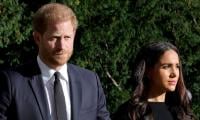 Prince Harry Considering ‘half-in, Half-out’ Royal Role Amid UK Trip?
Prince Harry Considering ‘half-in, Half-out’ Royal Role Amid UK Trip? -
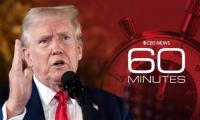 CBS Finally Airs Trump’s Full Interview 'pulled' Earlier After White House Threatens To Sue
CBS Finally Airs Trump’s Full Interview 'pulled' Earlier After White House Threatens To Sue -
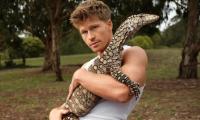 Robert Irwin Gets Honest About Being In South Africa After 'DWTS' Run In LA
Robert Irwin Gets Honest About Being In South Africa After 'DWTS' Run In LA -
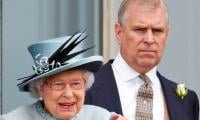 Queen Elizabeth’s Icy Response To Andrew, Jeffrey Epstein Scandal Revealed
Queen Elizabeth’s Icy Response To Andrew, Jeffrey Epstein Scandal Revealed -
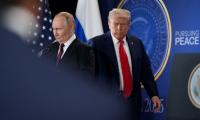 Trump Vows To Neutralize ‘Russian Threat’ From Greenland, Raising Arctic Stakes
Trump Vows To Neutralize ‘Russian Threat’ From Greenland, Raising Arctic Stakes -
 Green Day Revealed As Super Bowl 2026 Opening Act
Green Day Revealed As Super Bowl 2026 Opening Act -
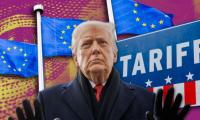 Trump's Greenland Tariff ‘blackmail’ Sparks EU Retaliation: Is ‘trade Bazooka’ Next?
Trump's Greenland Tariff ‘blackmail’ Sparks EU Retaliation: Is ‘trade Bazooka’ Next? -
 New Drug Shows Promise In Lowering Dangerous Blood Fats
New Drug Shows Promise In Lowering Dangerous Blood Fats -
 Real Reason Noah Schnapp Was Missing From Finn Wolfhard's 'SNL' Debut Revealed
Real Reason Noah Schnapp Was Missing From Finn Wolfhard's 'SNL' Debut Revealed -
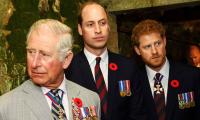 How Princes William, Harry Were Caught In Early Royal Controversy Involving Charles
How Princes William, Harry Were Caught In Early Royal Controversy Involving Charles -
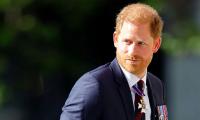 Prince Harry’s Absence Leaves Gap For Royal Family Among Young People
Prince Harry’s Absence Leaves Gap For Royal Family Among Young People -
 Karley Scott Collins Breaks Silence On Keith Urban Dating Rumours
Karley Scott Collins Breaks Silence On Keith Urban Dating Rumours -
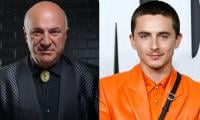 Timothee Chalamet Is Still A 'normal Guy,' Says Kevin O'Leary
Timothee Chalamet Is Still A 'normal Guy,' Says Kevin O'Leary -
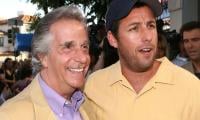 Henry Winkler Opens Up On His Special Bond With Adam Sandler: 'Filled With Warmth'
Henry Winkler Opens Up On His Special Bond With Adam Sandler: 'Filled With Warmth' -
 Bruce Springsteen Makes Strong Political Statement
Bruce Springsteen Makes Strong Political Statement -
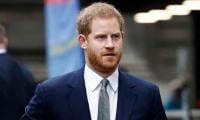 Prince Harry Relationship With King Charles 'not Straightforward,' Says Expert
Prince Harry Relationship With King Charles 'not Straightforward,' Says Expert
